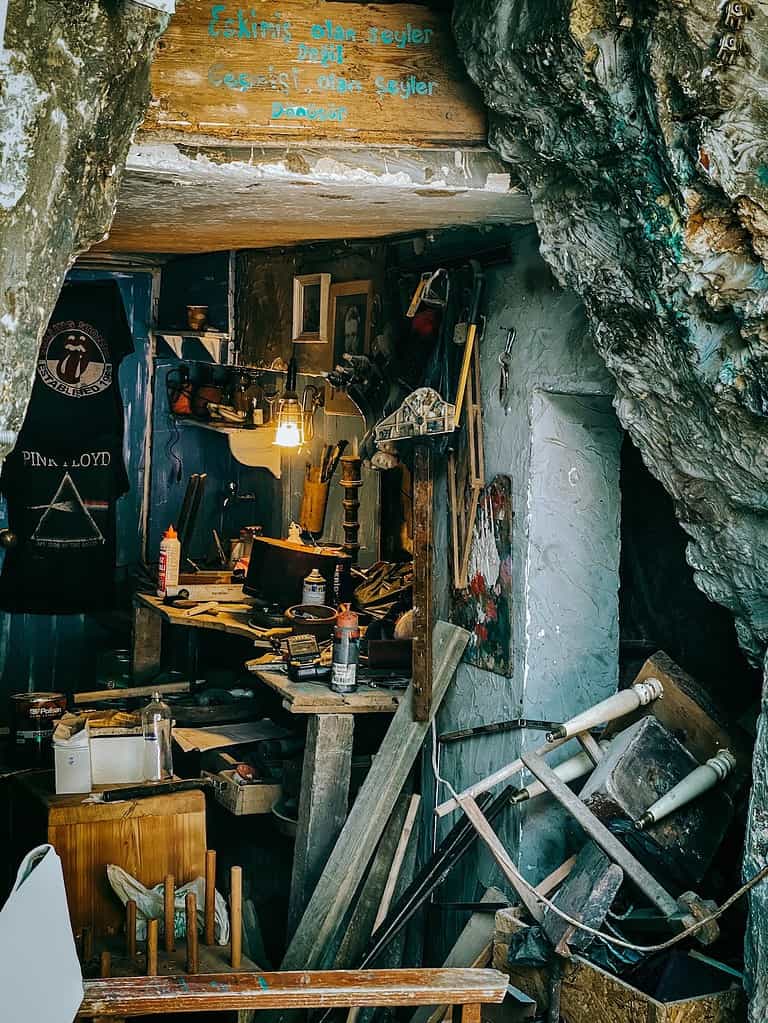Decluttering Tips For Hoarders
Decluttering tips for hoarders will help you can make progress towards a clutter-free home and a more peaceful life. If you’re struggling with hoarding, decluttering can feel like an overwhelming task. However, it’s important to remember that it’s never too late to start decluttering and creating a more organized and peaceful living space. With the right mindset and strategies, you can overcome the challenges of hoarding and make progress toward a clutter-free home.
In this article, we’ll share 21 decluttering tips specifically designed for hoarders. These tips are practical, actionable, and can be applied to any living space, no matter how cluttered it may seem. Whether you’re just starting your decluttering journey or you’ve been struggling for years, these tips will help you make progress toward a more organized and clutter-free home.
Remember, decluttering is a process, and it’s important to be patient and kind to yourself along the way.

Understanding Hoarding
Hoarding is a complex condition that affects many people. If you are struggling with hoarding, it’s important to understand what it is and why it happens. Here are a few key things to keep in mind:
Hoarding is not the same as clutter
While clutter can be a problem for anyone, hoarding is a distinct condition. Hoarding involves a persistent difficulty with discarding or parting with possessions, regardless of their actual value or usefulness. This can lead to extreme clutter and disorganization, which can have a negative impact on your daily life.
Hoarding can have many causes
There is no single cause of hoarding, and different people may experience it for different reasons. Some common factors that can contribute to hoarding include:
- Trauma or loss
- Anxiety or depression
- Genetics or family history
- Perfectionism or difficulty making decisions
- Obsessive-compulsive disorder (OCD)
Hoarding can be treated
If you are struggling with hoarding, it’s important to know that help is available. There are many different approaches to treating hoarding, including therapy, medication, and practical interventions like decluttering and organization. With the right support, you can learn to manage your hoarding and improve your quality of life.
Hoarding can be a serious problem
While hoarding may seem like a harmless quirk, it can actually have serious consequences. Hoarding can lead to social isolation, health problems, and even legal issues in extreme cases. If you are struggling with hoarding, it’s important to take it seriously and seek help as soon as possible.
Hoarding can be overcome
Finally, it’s important to remember that hoarding can be overcome. With the right support and a willingness to change, you can learn to manage your hoarding and live a happier, healthier life. Don’t be afraid to reach out for help if you need it – there are many people who understand what you’re going through and are ready to help you overcome your hoarding.
The Negative Effects of Hoarding
Hoarding disorder can have a significant impact on your life and the lives of those around you. Here are some of the negative effects of hoarding:
1. Health Risks
Cluttered living spaces can pose health risks, such as increased risk of falls, fire hazards, and exposure to mold, dust, and other allergens. Hoarding can also lead to unsanitary living conditions, which can increase the risk of infections and other illnesses.
2. Social Isolation
Hoarding can lead to social isolation, as individuals may feel ashamed or embarrassed about their living conditions. This can lead to a lack of social support and can exacerbate feelings of loneliness and depression.
3. Financial Burden
Hoarding can be a financial burden, as individuals may spend excessive amounts of money on acquiring and storing items. This can lead to financial difficulties, such as debt and bankruptcy.
4. Relationship Strain
Hoarding can strain relationships with family members, friends, and landlords. Cluttered living spaces can make it difficult for others to visit or stay in the home, and can lead to conflicts with landlords over lease violations.
5. Legal Problems
Hoarding can lead to legal problems, such as eviction, fines, and legal action from neighbors or local authorities. In extreme cases, hoarding can lead to criminal charges, such as animal cruelty charges for hoarding animals.
It’s important to seek help if you or someone you know is struggling with hoarding disorder. There are resources available to help individuals overcome hoarding and improve their quality of life.
How to Start Decluttering
If you’re a hoarder, decluttering can feel like an overwhelming task. But don’t worry, with the right mindset and approach, you can start decluttering your home. Here are a few tips to help you get started:
1. Start Small
Don’t try to declutter your entire home in one day. Instead, start with a small area, like a single drawer or shelf. This will help you build momentum and give you a sense of accomplishment.
2. Set Realistic Goals
Set realistic goals for yourself. Don’t aim to declutter your entire home in a week. Instead, set a goal to declutter one room in a month. This will help you avoid feeling overwhelmed and give you a sense of progress.
3. Sort Items Into Categories
When decluttering, sort items into categories, such as keep, donate, sell, or trash. This will help you make decisions about what to keep and what to get rid of.
4. Use the One-In, One-Out Rule
The one-in, one-out rule can be helpful for hoarders. For every new item you bring into your home, get rid of an old one. This will help you avoid accumulating more clutter.
5. Get Rid of Duplicates
If you have duplicates of items, such as kitchen utensils or clothing, get rid of the extras. You don’t need five spatulas or ten pairs of jeans.
6. Don’t Be Afraid to Ask for Help
Decluttering can be a difficult task, especially for hoarders. Don’t be afraid to ask for help from friends or family members. They can provide support and encouragement.
Remember, decluttering is a process, not a one-time event. Take it one step at a time and celebrate your progress along the way.
21 Decluttering Tips for Hoarders
Decluttering can be a daunting task, especially for hoarders. However, with a solid plan and some helpful tips, you can start making progress toward a clutter-free home. Here are 21 decluttering tips that can help you get started:
1. Create a Plan
Before you start decluttering, create a plan that outlines your goals and the steps you need to take to achieve them. Set realistic timelines and prioritize which areas of your home to tackle first. The idea is to adopt a more minimalist lifestyle.
2. Start Small
Start with a small area or a single room. This will help you build momentum and see progress quickly. Once you have successfully decluttered one area, move on to the next.
3. Sort Your Items
Sort your items into three categories: keep, donate/sell, and discard. Be honest with yourself and only keep items that are essential or have sentimental value.
4. Set Limits
Set limits on the number of items you keep in each category. For example, limit yourself to a certain number of books, clothes, or kitchen gadgets.
5. One In, One Out Rule
Implement the one-in, one-out rule. For every new item you bring into your home, get rid of an old one.
6. Donate or Sell Items
Donate or sell items that are in good condition but no longer serve a purpose in your home. This can help you earn some extra cash and reduce waste.
7. Create a Designated Space for Items
Create a designated space for each category of items, such as a bookshelf for books or a closet for clothes. This will help you stay organized and prevent clutter from building up again.
8. Use Storage Solutions
Invest in storage solutions such as shelves, bins, and baskets to help keep your items organized and easily accessible.
9. Label Your Items
Label your items to help you quickly find what you need and keep your space organized.
10. Digitize Your Documents
Digitize your important documents to reduce paper clutter and make it easier to access them when needed.
11. Get Rid of Duplicates
Get rid of duplicates of items you already have. For example, if you have multiple sets of dishes, consider donating or selling the extras.
12. Ask for Help
Ask for help from friends or family members who can provide emotional support and help you make difficult decisions about what to keep and what to get rid of.
13. Take Breaks
Take breaks when you feel overwhelmed or tired. Decluttering can be physically and emotionally exhausting, so it’s important to take care of yourself.
14. Reward Yourself
Reward yourself for making progress towards your decluttering goals. Treat yourself to a favorite activity or item as a way to motivate yourself to keep going.
15. Be Realistic
Be realistic about what you can accomplish in a given timeframe. Don’t try to declutter your entire home in one day.
16. Don’t Procrastinate
Don’t procrastinate when it comes to decluttering. The longer you wait, the more overwhelming the task will become.
17. Let Go of Guilt
Let go of guilt about getting rid of items that no longer serve a purpose in your home. Remember that you are creating a more peaceful and organized living space.
18. Practice Self-Care
Practice self-care during the decluttering process. Take breaks, eat well, and get enough sleep to help you stay focused and energized.
19. Maintain a Decluttered Home
Maintain a decluttered home by regularly going through your items and getting rid of anything that no longer serves a purpose.
20. Stay Motivated
Stay motivated by reminding yourself of the benefits of a clutter-free home, such as reduced stress and increased productivity.
21. Seek Therapy
There may be a reason why you started hoarding perhaps there was a traumatic event in your life. It’s a good idea to explore this possibility if you want to change your life permanently.
Conclusion
The above decluttering tips for hoarders will guide you on your path to changing this habit. this can be a daunting task, especially if you’re a hoarder. But with the right mindset and strategies, you can make progress and achieve a clutter-free home. Remember, it’s not about perfection, but progress.
Here are a few key takeaways from the 21 decluttering tips for hoarders:
- Start small and work your way up. Don’t overwhelm yourself by trying to declutter your entire home in one day. Instead, focus on one room or area at a time.
- Use the four-box method to sort through your items. Label boxes as “keep,” “donate,” “sell,” and “trash.” This will help you make decisions about what to keep and what to let go of.
- Take breaks and reward yourself. Decluttering can be mentally and physically exhausting. Take breaks to recharge and reward yourself for your progress.
- Seek help if needed. Don’t be afraid to ask for help from a friend, family member, or professional organizer. They can provide support and guidance throughout the decluttering process.
Remember, decluttering is a journey, not a destination. It takes time and effort, but the end result is a more organized and peaceful home. Keep these tips in mind and take it one step at a time. You got this!

